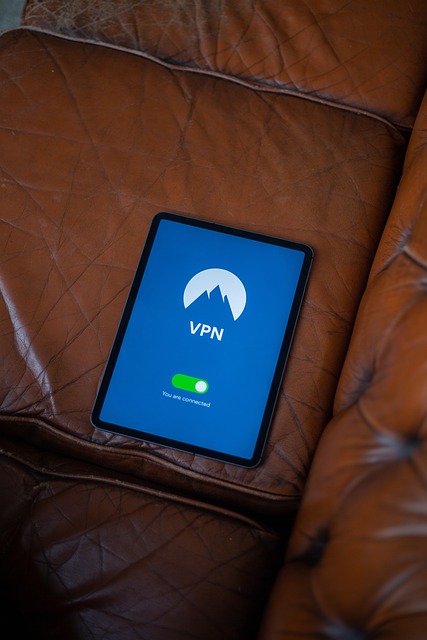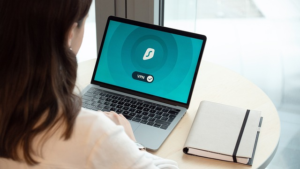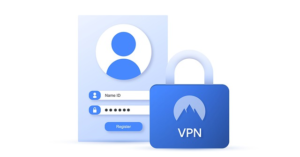
Pseudonymous domain investor responds to lawsuit alleging he duped broker out of $250,000.
In June, domain brokerage VPN.com filed a lawsuit (pdf) after it was duped into sending $250,000 worth of bitcoin (at the time, now worth less) in a domain transaction. The case was first reported by OnlineDomain.
VPN alleged that domain investors George Dikian and Qiang Du conspired to trick VPN.com into sending bitcoin in a fake domain transaction.
The domain broker said it was approached by Du in March 2022 about buying 89.com. VPN determined that George Dikian owned the domain. After making contact via email with someone claiming to be Dikian, VPN brokered a deal.
It appears that VPN played both sides of the transaction. Brokers typically work for one party or another and take a commission from who they represent. In this case, VPN found that the seller was willing to take $2.25 million and the buyer was willing to pay $4.4 million. So VPN would pocket $2.15 million.
(I reached out to VPN.com CEO Michael Gargiulo in July to ask who he was representing in the transaction. He said he was representing Du in the 89.com transaction.)
VPN says that Dikian insisted on using an escrow service called Intermediar to close the transaction because it could facilitate the payment in bitcoin.
Here’s where the alleged scam came to a head. The person purporting to be Du said he couldn’t pay with bitcoin because he’s in China, which has a complete ban on cryptocurrencies. So Dikian agreed to accept $2 million USD through Intermediar and a $250,000 payment in bitcoin from VPN, which VPN would send after it got its broker commission payout from Intermediar.
Intermediar allegedly informed VPN that it had received the funds and the deal was complete, and payouts would be forthcoming.
The two defendants then allegedly negotiated more sales with VPN and agreed to use Escrow.com. They set up an Escrow.com transaction in which VPN would receive a whopping $4.475 million. This was apparently to string VPN along into thinking it was going to make even more money than the millions it stood to get from the 89.com transaction.
At that point, with Intermediar saying it had sent the money to VPN but VPN not receiving it yet, VPN went ahead and sent the 6.27 bitcoin to the person purporting to be Dikian.
When VPN didn’t receive its money, Intermediar said that the transaction and withdrawals were put on hold because Dikian requested the transaction to be canceled because he never received the $250,000 of bitcoin.
The money from Intermediar never arrived, and VPN later discovered that it was the victim of a scam.
Nobody responded to the lawsuit and the court entered a default, but then “George Dikian” showed up to defend himself this month. I put his name in quotes here not because the person who transacted with VPN may or may not have been George Dikian, but because Dikian is a pseudonym for the domain investor. In other other words, VPN did a transaction with someone without knowing their real name.
Dikian says he did not participate in the alleged scheme.
Dikian’s response to the suit states:
On information and belief, based upon the admissions in Plaintiff’s Complaint, it is Plaintiff that attempted to commit one completely fraudulent domain name transaction. Apparently blinded yet guided by nothing but greed, Plaintiff alleges that it was defrauded of some $250,000 worth of bitcoin (as of May 4, 2022 – worth about half that amount now), in the process of perpetrating its own fraud, by which Plaintiff hoped to extract a $2,150,000 so-called “commission” as an undisclosed dual agent for both parties to the fictional transaction.
The response also states:
On information and belief, based upon reasonable investigation, the purported “escrow service” Intermediar.com was an obvious fraud that could never be trusted in any transaction. For example, the purported escrow service website contained a purported blog, with text that was simply copied and pasted from other industry websites, such as Namecheap and Dan.com. More significantly, in the website’s purported “Terms of Service”, no person or legal entity was identified, the address was stated as a 14-story office building, and there was no such registered company in the Netherlands as “Intermediar.com” identified in the terms of service on the site (which also consisted of copied text from a site called Paylax). These two facts make it immediately obvious that the Intermediar.com website consisted mostly of text copied from other sites, and failed to identify any existing person or legal entity of any kind which might be held accountable. Yet, on information and belief based upon the allegations in the Complaint, Plaintiff sought to conduct a transaction worth more than $6 million through this obviously fake “escrow service.” On information and belief based upon experience in the domain name industry, such “fake escrow scams” have been perpetrated and revealed publicly many times in the industry over many years. Any purportedly professional domain name broker, as Plaintiff purports to be, would never utilize such a “new” and obviously fraudulent “escrow service” for any significant transaction.
and later:
On information and belief, based on long experience in the domain name industry, it is unconscionable for any domain name broker to charge a nearly 100% commission (based on the sales price) in any transaction. Typical domain name brokerage commissions for multi-million dollar transactions are in the range of 5% to 15%. Dual agency transactions such as that described by Plaintiff are highly discouraged, if not illegal. Dikian states that he has never and would never agree to any transaction proposed by a dual agent disclosing a nearly 100% commission on the sales price.
The full response is here (pdf).
What’s clear is that VPN.com got duped. What’s not clear is who scammed the company.


